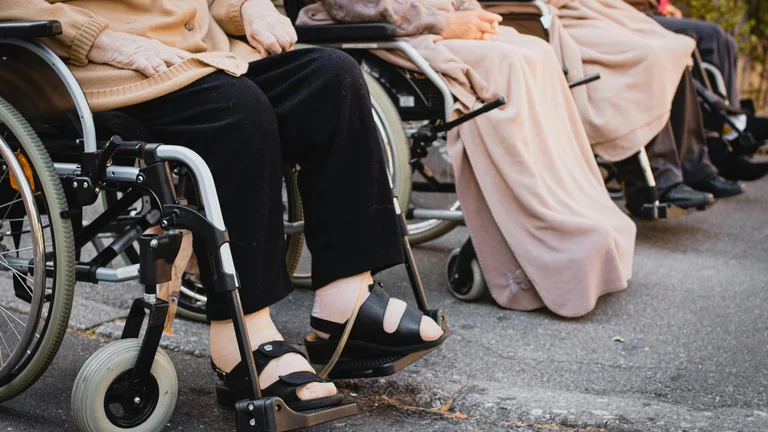Understanding Retirement Communities

Retirement communities are residential areas designed specifically for older adults, typically aged 55 and above. These communities provide various services and amenities aimed at enhancing the quality of life for their residents while allowing them to maintain a degree of independence.
These communities come in different forms, from independent living facilities to more supportive environments. The aim is to create a social atmosphere that fosters companionship and participation in activities.
Types of Retirement Housing Options
There are several types of retirement housing options catering to different levels of care:
- Independent Living: Ideal for seniors who are largely self-sufficient but prefer living in an age-restricted community. These facilities offer amenities like meals, housekeeping, and social activities.
- Assisted Living: Best suited for those who require some assistance with daily tasks such as bathing, dressing, or medication management. It combines housing, support services, and healthcare.
- Continuing Care Retirement Communities (CCRCs): These offer a range of services from independent living to skilled nursing care, allowing seniors to remain in one community even as their health care needs change.
- Nursing Homes: Provide a higher level of medical care for individuals with significant health issues. They offer round-the-clock nursing services.
- Home Sharing: This increasingly popular option allows seniors to rent out extra rooms in their homes, creating a supportive living situation without needing to move.
Benefits of Living in Retirement Communities
Living in retirement communities has numerous advantages:
- Social Interaction: These communities often provide numerous opportunities for social engagement through activities, outings, and clubs, helping to combat loneliness.
- Maintenance-Free Living: Many of these communities handle maintenance tasks, reducing the burden of homeownership for seniors.
- Safety and Security: Most retirement communities have security measures in place, including gated access, emergency response systems, and onsite staff to help ensure residents feel safe.
- Access to Healthcare: Many communities offer easy access to healthcare services, either onsite or nearby, assisting residents in managing their health needs.
Cost Considerations for Retirement Living
Understanding the costs associated with different retirement housing options is essential for proper planning:
- Initial Costs: Initial costs can vary significantly depending on the type of facility. Independent living may have lower upfront costs compared to a nursing home, where healthcare needs dictate higher expenses.
- Monthly Fees: Most communities charge monthly fees that cover rent, utilities, and various services. It's crucial to understand what these fees include and any additional costs that may arise.
- Insurance: Medicare and Medicaid may cover certain costs, especially in nursing homes, but often do not cover independent or assisted living facilities. Understanding insurance options and potential out-of-pocket expenses is critical.
- Transfer Payments: Selling a home can provide funds: these payments can help offset the costs of moving into a retirement community.
Choosing the Right Community
Selecting the right retirement community involves evaluating several factors:
- Location: Proximity to family, friends, doctors, and activities can significantly influence satisfaction with a community. It’s vital to consider what is easily accessible from your potential new home.
- Services and Amenities: Identify which services are most important to you—like fitness options, dining services, and transportation—and ensure the community meets your needs.
- Culture: Each community has a unique culture. Visit the community multiple times to get a feel for the atmosphere and see if it aligns with your lifestyle.
- Price: Ensure you are comfortable with the pricing structure and potential future increases. A transparent and clear pricing model can aid in avoiding unexpected costs.
| Type of Community | Level of Care | Typical Amenities | Cost Range |
|---|---|---|---|
| Independent Living | Low | Meal services, activities, housekeeping | Low to Moderate |
| Assisted Living | Moderate | Personal care assistance, meals, social activities | Moderate to High |
| Continuing Care Retirement Communities (CCRCs) | Varied | Multiple levels of care, health services, activities | High |
| Nursing Homes | High | 24/7 medical care, rehabilitation services | High |
| Home Sharing | Variable | Shared living space, companionship | Variable |
FAQ - Retirement Communities and Housing Options
What is a retirement community?
A retirement community is a residential area designed for older adults, typically aged 55 and above, offering various services and amenities to enhance their quality of life.
What types of housing options are available for retirees?
Retirees can choose from independent living, assisted living, continuing care retirement communities, nursing homes, and home-sharing arrangements.
What are the benefits of living in a retirement community?
Benefits include social interaction, maintenance-free living, enhanced safety and security, and easy access to healthcare services.
How much does it cost to live in a retirement community?
Costs vary based on the type of community, initial and monthly fees, and insurance coverage. It's important to evaluate the pricing structure of each community.
How do I choose the right retirement community?
Consider factors like location, available services and amenities, community culture, and overall costs when selecting a retirement community.
Retirement communities offer various housing options, including independent living and assisted living. They provide essential services, encourage social interaction, and enhance security while catering to different healthcare needs. Understanding the benefits and costs associated with each option helps seniors make informed decisions about their living arrangements.
Conclusão sobre Retirement Communities and Housing Options.